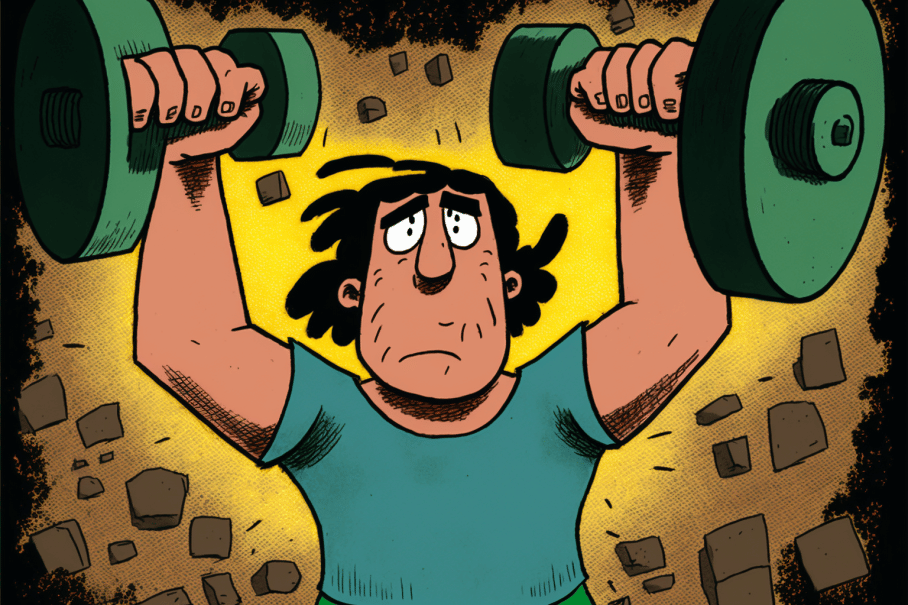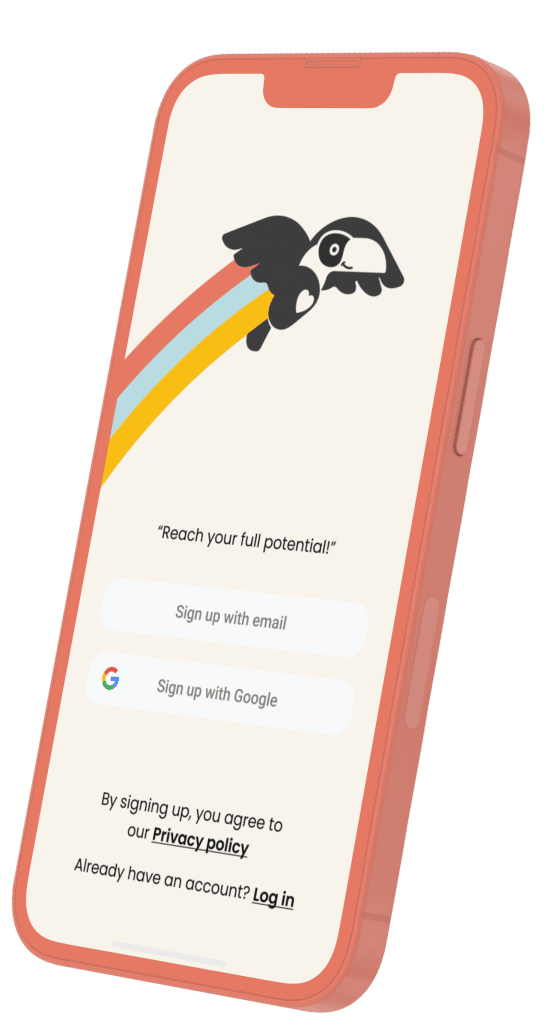Are you ever aware, of what are your weaknesses exactly? And do you know how to give well-designed examples about your weaknesses? If no, keep reading, it’s worth it First of all, we have to tell you the most important thing: don’t be too stuck on your weaknesses. As Anna Alex, the founder of Planetly says, everyone has weaknesses, and you should aim to improve your strengths rather than putting too much effort into your weaknesses, which you might not even be able to change!
Before you go to the interview, make sure to optimize your Linkedin, so you have up-to-date data shown for the recruiter, in case he/she also checks your profile. During the interview, there are many questions the interviewer can ask. Some of the most common ones have a more positive vibe, like “Why should we hire you?” or “What are your greatest strengths?“. Be prepared, because the interviewer can ask you directly about your top 3 weaknesses! You might also uncover them indirectly while you give insights into projects you’ve been working on and the life experiences you gained.
If you answer these hard questions in a promising way, it’ll be easier to negotiate your salary and you won’t have to wonder why you did get hired.
In order to be able to give a perfect answer to these questions, you not only need to know yourself and be aware of your qualifications but also be well prepared. Trust us: we’ve seen many confident applicants with high potential, and even the best ones tend to get tangled up. It’s easy for all of us to talk proudly about what we are good at. But it gets extremely hard to admit – even to ourselves – our weaknesses, especially when the time is ticking and the interviewers are staring at you to give a reasonable answer. That’s why we cannot emphasize enough the importance of preparation in advance.
Tips on how to answer what are your weaknesses
First, you should make yourself comfortable with your shortcomings! Everyone has their very own set of skills and obviously, a set of other skills their lack. As Lisa, the founder of Female Founders said in our interview with her, the best thing in the startup environment is that everyone is such a different character.
If you accept that, you can actually pass through the “I-want-to-be-perfect” feeling (that many of us have, by the way), and show your potential employer that you not just accepted your weaknesses, but are continuously working on improving them. This shows dedication, which already brings us to our very first tip:
The golden rule is to minimize the negative characteristic and rather emphasize the positive effect of it.
Choose a trait and use the STAR method to explain how you successfully overcame your weakness. Don’t dig into personal aspects since the interviewer doesn’t care if you are not a good cook or that you are the jealous type. Professionalism should still be of great importance, therefore you should mention qualities they can relate to. Don’t lie! Lies smell immediately fishy, and you don’t want to lose credibility over that. Saying “I don’t have any weaknesses” on the other hand, reflects boastfulness. Simple honesty is rewarded!
If you read through the examples below, you’ll realize, there is a shared structure to all the potential answers:
- the quality itself
- a hidden positive characteristic covered by the negative effect of the mentioned quality
- your learnings & the method that helped you to overcome your weakness
- and the final ending with “…ever since that, I improved”.
Why is this structure so crucial? It’s fine to have different weaknesses and strengths– everyone does and that’s what makes the startup ecosystem so diverse. What is important, is to show that you are hard-working in order to improve in your weaknesses.
If you don’t believe us, just listen to the interview with the founder of Trending Topics, Bastian Kellhofer or the founder of Shpoch, Katharina Klausberger! They emphasize, that they hire for personality and attitude towards work, rather than for the actual (lack of) skills. Skills can be acquired, but attitudes and approaches can hardly be. Within your answers, you should focus on always trying to improve!
What are your weaknesses in interview examples?
Self-criticism
“I have a tendency to over-criticize myself, even if my work receives a positive response. I usually feel that I could have done more for the project which leaves me with cognitive dissonance, regardless of the outcome of the project. It’s hard for me to look objectively at my achievements as achievements, but I’m working on it, and ever since my confidence and level of satisfaction are much higher!”
Insecurity
“When we are in a bigger team meeting, I usually don’t like to give much voice to my opinion. I’m scared that I might not be right or that I offend someone. Therefore I share my concerns privately with the respective individuals or in smaller team meetings. If it raises some unsolved issues, usually the project leader brings it up as a shared concern from the team. I try to improve and to share my opinion even if it creates a great amount of discomfort to me. Ever since it’s been easier to talk in front of the company!”
Maximalism
“I always feel like I’m in competition against myself. I am never completely satisfied with the tasks I finished, regardless of the positive reaction I receive from fellow colleagues. As a result, I tend to put unnecessary extra pressure and working hours on my shoulder and I have less time to take care of myself and my physical well-being. If I make even a tiny mistake, I feel resentment for days. I’ve realized its negative effect, and I’m trying to convince myself that nothing in life is perfect and if the work I’m doing is good enough for my supervisor, it should be good enough for me as well.”
Introvert
“I am an introverted type, which makes it hard to connect with my colleagues on more than a professional level. I’m a good listener, therefore when someone wants to share something personal with me, I’m more than happy to listen but giving advice is not that simple, since it’s hard for me to share an example from my own life. I have a very artistic side, therefore I share my own poems on my personal website, and ever since I feel like it’s been easier to talk about myself to people.”
Extrovert
“I’m a very friendly and extroverted person, so integrating into a team was never a problem for me. However, wanting to integrate too fast into a well-accustomed team has caused some discomfort in the past. For example, in XY company I’ve joined a team that’s been working together for the past years. They had their own inside jokes, pace, and structure of working together, and while I was trying really hard to fit into the group, my behavior was seen as rather impatient and strained than appreciated and welcomed. When I realized that, I stopped trying, and eventually new experiences brought me closer to the team. I’ve learned that not every team is the same and that time and patience will bring about the connection team members should have with each other.”
Creative Writing
“I have to admit, I’m really good with numbers but when it comes to content writing, I’m no Shakespeare. I’ve always admired the creative writers in my previous company, I could have never come up with such creative slogans and descriptions. I prefer to explain the methodology behind my numbers with short, well-understood sentences. Long, baroque-style sentences are never present in my emails and way of talking. I’m aware that reading books can help this quality and I feel that my wording has improved ever since.”
Too detail-oriented
“When I finish a task, I double-check my work comparatively many times, just to be on the safe side. Therefore I tend to finish my tasks a bit slower than others, but it’s because I want to make sure that every detail and number is correct and that we don’t generate any losses due to mistakes. I try to ease this quality by setting up rules like I cannot double-check a task more than 3 times.”
Not enough detail-oriented
“I usually consider myself the “big-picture” person with many creative ideas and visions. To be quite honest, I sometimes tend to overlook small details, but since I’m aware of this quality, I try to put even more emphasis on going through my final work one more time, looking for small mistakes that might occur. For high priority task, I even ask someone just to double-check, since four eyes see more than two.”
Impatience
“I’m a very fast person: I work fast, talk fast, and think fast. The negative effect includes that I become impatient when people are slower than I am. I have to admit, it makes me a bit annoyed when I meet individuals who talk slowly or decide to take their time finishing a task that I know I could do faster. One of the solutions I’ve found is yoga and breathing techniques. When I feel angry or upset, I take three big breaths and I try to calm myself down. This definitely has proven my impatient behavior, and I feel calmer and more relaxed even when my impatience is justifiable!”
Too sensitive
“In meetings when colleagues share concerns related to my work or my team, I take it really personally and it takes me a long time to emotionally recover from that. For mistakes, I never blame anyone else but me, even when deep down I know it wasn’t my fault, but I feel like I could have done something to avoid negative reactions. I try to minimize this by asking others for their point of view. In the past, many people told me that I beat myself up for no reason and that I over exaggerate, so I’m trying to avoid feeling bad and try to look at mistakes from different angles.”
What to do after the interview
Ask relevant questions
After brilliantly answering all the questions, there are still some things left! Make sure to show interest in the startup by asking relevant questions. What are the values? Where do they see themselves in 3 years? Try to choose your questions wisely. Don’t ask too much (2-3 questions should do), and don’t focus solely on one topic, on your compensation for example.
You can ask about their Employee Stock Option Pool, or ESOP and whether you would receive shares, but don’t dig too deep into it. The recruiter can have the impression that you apply for the job because of the money and not the passion, which is one of the main characteristics of a startup!
Follow-up
Besides the first interview round, you can have other rounds and virtual assessment centres. Ask about the next steps, for example:
- how many stages a candidate has to pass before getting accepted (important to put this question in a general way, don’t assume you’re already hired)
- is there anything in specific you’ll need to prepare
- when approximately you’ll get feedback on the interview
- what is the overall timeframe and when would you need to start
- and if you feel bold, even if it’s fine to connect personally on Linkedin.
That’s it! If you feel prepared for your next interview, get one step closer, and apply to our new startup jobs all over Europe!


